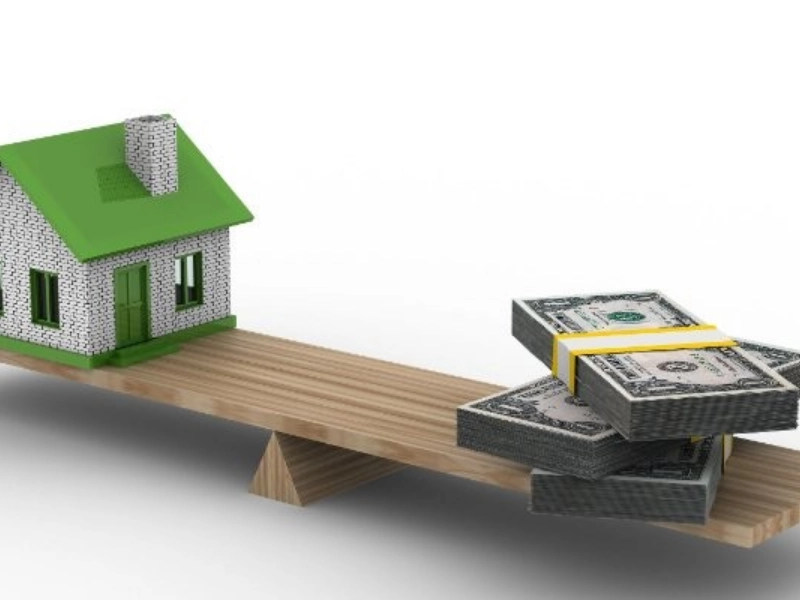If You Should Refinance Your Mortgage, Now Is The Right Time
Refinance loans can be utilized for a number of purposes, including reducing your monthly payment, expediting loan payback, and increasing your home's equity. Your eligibility for a refinance will depend on your credit score and level of financial stability. Even though you might believe that the time is appropriate for a new relationship, this isn't always the case. Similarly, there might be a better opportunity to refinance your mortgage soon.
1. A reduction in interest rates

2. Combine debt
 You can save money by paying off other debt with a home equity loan or home equity line of credit (HELOC) at a lower interest rate. A single monthly payment has the advantage of simplifying budgeting, lowering the possibility of skipping payments, which can result in late penalties and a negative impact on your credit scores, and possibly accelerating the discharge of your debt.
Over the course of your home loan, you may also be able to save money by consolidating your debt at a reduced rate. However, the plan does not ensure that you will never get into debt again, nor does it deal with the underlying spending habits that led to your initial debt issues.
Additionally, if you apply for a new loan, your credit may be temporarily damaged. Additionally, you might find it difficult to obtain approval for future financing if your loan application is rejected. Because of this, it's crucial to consider the benefits and drawbacks of debt consolidation before making this financial decision.
You can save money by paying off other debt with a home equity loan or home equity line of credit (HELOC) at a lower interest rate. A single monthly payment has the advantage of simplifying budgeting, lowering the possibility of skipping payments, which can result in late penalties and a negative impact on your credit scores, and possibly accelerating the discharge of your debt.
Over the course of your home loan, you may also be able to save money by consolidating your debt at a reduced rate. However, the plan does not ensure that you will never get into debt again, nor does it deal with the underlying spending habits that led to your initial debt issues.
Additionally, if you apply for a new loan, your credit may be temporarily damaged. Additionally, you might find it difficult to obtain approval for future financing if your loan application is rejected. Because of this, it's crucial to consider the benefits and drawbacks of debt consolidation before making this financial decision.
3. Utilize home equity
 The amount that you owe on your mortgage and the value of your home together are known as your home equity. As you pay down the principle on your loan, your home equity grows. However, you may accelerate this process by refinancing to a lower interest rate, which can cut your monthly payments and ultimately save you thousands on mortgage costs.
You can save money by choosing a home equity loan, or HELOC, over credit cards and personal loans, which have higher interest rates. Furthermore, using the equity to pay off debt might help raise your credit utilization ratio, which eventually raises your credit score. Nevertheless, before using home equity, it's crucial to consider the advantages and disadvantages. For instance, you might want to use the funds for emergency bills or home upgrades that raise the value of your property. You might not require the funds for other uses, such as debt repayment with a higher interest rate.
The amount that you owe on your mortgage and the value of your home together are known as your home equity. As you pay down the principle on your loan, your home equity grows. However, you may accelerate this process by refinancing to a lower interest rate, which can cut your monthly payments and ultimately save you thousands on mortgage costs.
You can save money by choosing a home equity loan, or HELOC, over credit cards and personal loans, which have higher interest rates. Furthermore, using the equity to pay off debt might help raise your credit utilization ratio, which eventually raises your credit score. Nevertheless, before using home equity, it's crucial to consider the advantages and disadvantages. For instance, you might want to use the funds for emergency bills or home upgrades that raise the value of your property. You might not require the funds for other uses, such as debt repayment with a higher interest rate.
4. Steer clear of foreclosure.
 If you are struggling financially, refinancing might be able to keep you out of foreclosure. Nonetheless, in order to be eligible and cover closing expenses, you need to have good credit. Furthermore, lenders will typically only allow you to refinance if you haven't missed any payments and only in the pre-foreclosure phase.
Refinancing for a shorter term might lower your monthly payment and expedite loan discharge (for instance, from a 30-year mortgage to a 15-year loan). However, it will also result in a higher overall interest payment amount.
Get in touch with your servicer right away to talk about your possibilities for loss mitigation if you're behind on your mortgage. Mortgage servicers are required under federal law to assist delinquent borrowers in keeping their houses and avoiding foreclosure. To help, they can arrange short sales, forbearance, and loan modifications. Before you reach this point, you can also attempt to refinance into a new mortgage. While there is a greater chance of success, this isn't always achievable.
If you are struggling financially, refinancing might be able to keep you out of foreclosure. Nonetheless, in order to be eligible and cover closing expenses, you need to have good credit. Furthermore, lenders will typically only allow you to refinance if you haven't missed any payments and only in the pre-foreclosure phase.
Refinancing for a shorter term might lower your monthly payment and expedite loan discharge (for instance, from a 30-year mortgage to a 15-year loan). However, it will also result in a higher overall interest payment amount.
Get in touch with your servicer right away to talk about your possibilities for loss mitigation if you're behind on your mortgage. Mortgage servicers are required under federal law to assist delinquent borrowers in keeping their houses and avoiding foreclosure. To help, they can arrange short sales, forbearance, and loan modifications. Before you reach this point, you can also attempt to refinance into a new mortgage. While there is a greater chance of success, this isn't always achievable.








